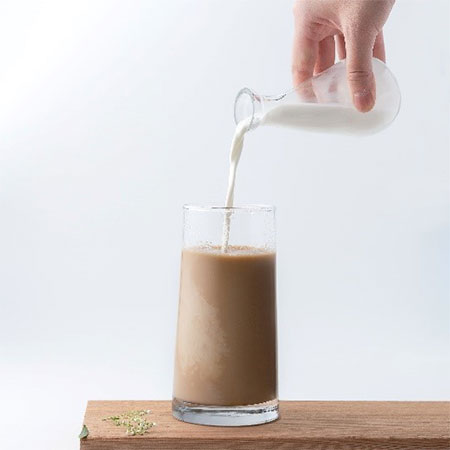By: Ginger Cochran, MS, RDN, CDCES
Soy is a hot topic often debated due to popular misconceptions based on poor research. Some people celebrate soy for its ability to reduce risks for heart disease, cancer, osteoporosis, and obesity. Other’s claim it causes cancers, feminization of males, and dementia. This blog will clear up some of the most common soy myths.
Soy is one of very few plant-based complete proteins. This means soy contains all essential amino acids our body needs to function and repair itself. Soy is lower fat and calories, high in fiber and healthy omega-3 fats.
According to Harvard School of Public Health nutrition, research mostly leans towards the health benefits of soy.
Myth 1: Soy will increase estrogen in the body.
The Truth:
Soy contains high amount of isoflavones, known as phytoestrogen, or plant chemicals capable of estrogenic effects. These phytoestrogens function similarly to human estrogen, but with much weaker effects. Soy isoflavones have the ability to bind to estrogen receptors in the body. For premenopausal women with a high amount of estrogen already circulating in the body, the isoflavones may have an anti-estrogenic effect. For post-menopausal women, soy may act more like estrogen. This is why it may help reduce hot flash and ease symptoms of menopause.
Myth 2: Soy feminizes males.
The Truth:
A literature review in Fertility and Sterility showed that soy isoflavones from supplements and soy-rich foods did not affect testosterone levels. Therefore, soy will not have a feminizing effect on men.
Myth 3: Soy causes breast cancer.
The Truth:
The phytoestrogens in soy may block estrogen in the breast. This may actually reduce one’s risk for breast cancer because estrogen can stimulate multiplication of breast and breast cancer cells. Some research shows this anti-cancer benefit while other research shows no association. Further research is needed but it’s clear you can enjoy this lean high quality protein without fear.
Myth 4: Soy causes dementia.
The Truth:
Soy contains an isoflavone, called daidzein. In preliminary research, daidzein has shown to reduce cognitive decline but further research is needed for a clear association.
Bottom-line
Soy is a great plant-based protein. Research shows following a more plant-based diet has serious benefits for your health including: healthy weight, cardiovascular health, and improvements in blood pressure. Soy is high in healthy fats and fiber, promoting healthy gut microbiome and lower cholesterol. As with most nutrition research, soy research is constantly evolving. Soy can be enjoyed as edamame, protein powder, tofu, or tempeh. Its versatility and mild flavor make it great healthy addition to any meal.
Check out Designer Protein's NEW soy line of protein - Designer Soy!
Sources
Daidzein and its Effects on Brain
https://pubmed.ncbi.nlm.nih.gov/27804870/
Harvard School of Public Health: Straight Talk About Soy
https://www.hsph.harvard.edu/nutritionsource/soy/
Soybean isoflavone exposure does not have feminizing effects on men: a critical examination of the clinical evidence




